Ryan Hall's Blog, page 265
April 19, 2016
Photos: The 2016 Boston Marathon Elite Races
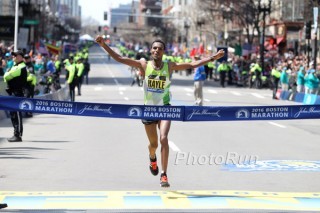
The 2016 Boston Marathon will be remembered for the impressive come-from-behind win by Atsede Baysa and the overall impressive day by Ethiopian runners. On the American front, Neely Spence Gracey finished ninth in her marathon debut. In all, 26,639 runners finished the 2016 Boston Marathon.
RELATED: 2016 Boston Marathon Top 20 Finishers
Here are photos from the elite races, taken by PhotoRun.net:
Photo Gallery
1 of {count}
Back to Start
View Larger Image

At the start line.
View Larger Image

The women's start
View Larger Image

View Larger Image

View Larger Image

The women in Framingham
View Larger Image

The masses at the start.
View Larger Image
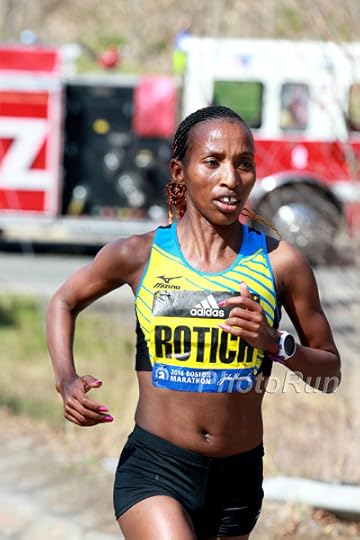
Caroline Rotich, the 2015 champion, dropped out about 5 miles into the 2016 race.
View Larger Image

Jelena Prokocuka finished fourth in 2:32:28.
View Larger Image

Boston Marathon race director Dave McGillivray.
View Larger Image

The men's wheelchair race featured an epic finish. Marcel Hug eeked out the victory.
View Larger Image

Tatyana McFadden continued her dominance in the wheelchair division.
View Larger Image

Top Americans Neely Spence Gracey and Sarah Crouch chatted early in the race.
View Larger Image

Neely Spence Gracey was making her marathon debut.
View Larger Image

Zach Hine finished 10th in 2:21:37, the top American male.
View Larger Image

View Larger Image

Neely Spence Gracey led during Mile 5.
View Larger Image

American Clint Wells finished 17th in 2:24:55 and was the men's masters champion.
View Larger Image

View Larger Image

Tiki Galena of Ethiopia finished 14th.
View Larger Image
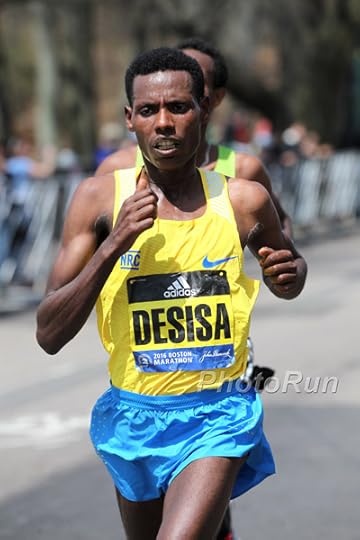
Lelisa Desisa was the defending champion, and he made the move that thinned out the pack.
View Larger Image

For a while, four women broke away from the pack. None of them would win, however.
View Larger Image

American Sarah Crouch finished 11th in 2:37:36.
View Larger Image

American Hilary Corno placed 20th and was the top masters finisher in 2:48:49.
View Larger Image

Joyce Chepkurui ended up finishing third in 2:30:50.
View Larger Image

Ian Burrell of the U.S. finished 13th.
View Larger Image
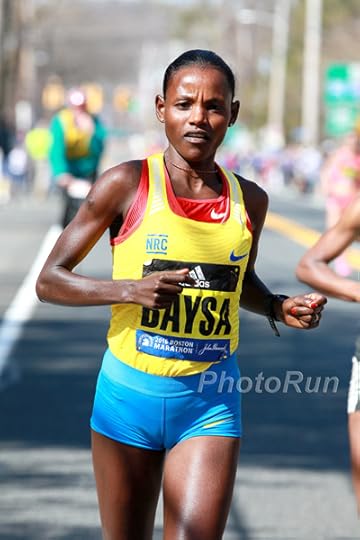
Atsede Baysa made up a 37-second deficit in the last 5 miles of the race.
View Larger Image

Lelisa Desisa and Lemi Berhanu Hayle broke away from the field and turned it into a match race.
View Larger Image

Lemi Berhanu Hayle.
View Larger Image

You can see Baysa reeling in the lead pack with just a few miles to go.
View Larger Image

Atsede Baysa won big, crossing in 2:29:19.
View Larger Image

View Larger Image

Baysa won by a 44-second margin.
View Larger Image

Hayle broke away from Desisa and won in 2:12:45.
View Larger Image

Hayle celebrated at the finish.
View Larger Image
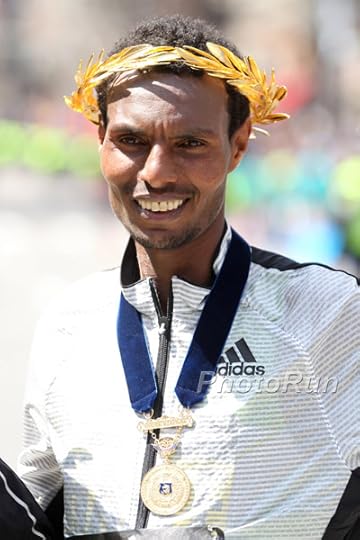
View Larger Image

View Larger Image

View Larger Image

View Larger Image

View Larger Image

In all, 26,639 runners finished the 2016 Boston Marathon.
Related Galleries

Photos: The 2016 Boston Marathon Shirts
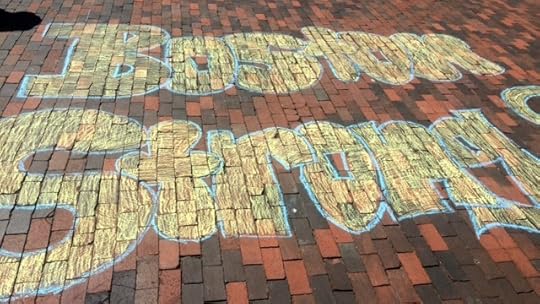
Photos: Excitement Brewing Before Boston 2016

Photos: Scenes From the 2016 Boston Marathon Expo
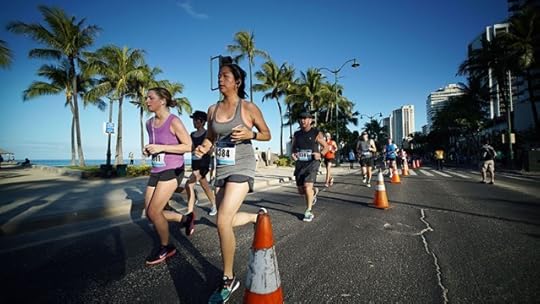
Photos: The 2016 Hapalua, Hawaii’s Half Marathon

More Galleries
The post Photos: The 2016 Boston Marathon Elite Races appeared first on Competitor.com.
April 18, 2016
Want to Eat Better? Eat Together

Adapted with permission of VeloPress from Feed Zone Table by chef Biju Thomas and Dr. Allen Lim.
One way to understand differences in social eating is by asking those who have little choice in how dinner is served—our children. We showed that Americans have a lot of room for improvement at the dinner table, but that the British are perhaps in even worse shape.
One culture that’s getting it right, though, is the French. The French excel as a nation when it comes to creating consistent and structured meal patterns. A five-year study on French eating patterns found:
97 percent of the children ate breakfast.
100 percent had lunch, with most (67 percent) having lunch at home and the rest (33 percent) in their school cafeteria.
88 percent had a traditional snack after school.
And 99 percent had dinner, almost always at home with all family members (87 percent).
Compared to data from the United States, the French statistics are utopian, especially if we believe that family meals are important to our children’s health and well-being.
Though it’s hard to argue against the benefits of family meals for children, how this relates to the greater public health is another question.
The Heart Speaks Truth
Most studies show that physical inactivity, diabetes, smoking, obesity, hypertension, family history, and a high-fat diet are risk factors for cardiovascular disease. The “French paradox” is the observation that the French have extremely low rates of cardiovascular disease despite a high intake of dietary cholesterol and fat.
There are reports that place the total fat consumption of the French in the range of 38–40 percent of total caloric intake, with saturated fat in the realm of 15 percent. Despite this high fat consumption, the World Health Organization reports that from 2000 to 2007, the average age-standardized mortality rate in France from heart disease was 8.3 per 100,000. This is second only to Japan, which had a mortality rate from heart disease of 6.4 per 100,000 from 2000 to 2009. In contrast, from 2000 to 2005, the United States had a mortality rate from heart disease of 26.4 per 100,000—a death rate more than three times higher than the French and four times higher than the Japanese.
There are many explanations for the French paradox which include
the possibility of underreporting deaths related to cardiovascular disease,
a higher polyphenol intake from red wine, which may be protective to the heart,
a higher consumption of fruits and vegetables,
more consistent physical activity (i.e., not sitting all day),
and a more holistic attitude about food that emphasizes higher quality, more diverse foods, and sharing meals.
Although all of these factors are important and likely play a role in explaining the French paradox, it’s the cultural differences in our attitudes about food and its role in community that I find most interesting. I write more about this in the Introduction to Feed Zone Table.
What’s fascinating is that the differences in cardiovascular disease between the French and Americans aren’t explained by what we eat, especially with respect to total fat and saturated fat. It’s likely that the differences in our cultural attitudes about food play a more important role in this health disparity because they directly shape how we eat.
If there’s one single or culminating behavior that best explains the French paradox, it’s simply that the French eat less than Americans do. In French restaurants, portion sizes are smaller, as are individually wrapped portions of food in French supermarkets. Even French cookbooks list a higher serving number for a given amount of food.
Of note, not only do the French eat less than Americans do, they also take much longer to eat, relishing in the experience rather than just trying to get on with their day. How is it that the French eat less but take longer to eat? The simple answer is that the French eat together.
Eating Alone & Quickly
In fact, as studies on French and American family meal frequency and structure clearly demonstrate, the French eat together in orders of magnitude more than Americans do. I can’t help but think that this is a critical though rarely discussed explanation for why Americans die from heart attacks at a rate three times higher than the French. Rarely does someone just linger over a small meal by themselves.
Given the countless factors that are responsible for cardiovascular disease, it may seem far-fetched that one behavior—eating together—may be a key to preventing cardiovascular disease. Certainly the people we eat with can reinforce both negative and positive behaviors. So just coming together isn’t enough. Still, France isn’t the only place in the world where the combination of eating with family and a positive social dynamic is linked with a diet-health paradox. Japan’s food culture includes a lot of fast-food eating, but those restaurants are filled with families sharing food and conversation instead of people eating alone and quickly.
What We Eat May Matter Less than How We Eat
What diet-health paradoxes in places like France and Japan demonstrate is that it’s not solely about what one eats when it comes to a society’s health. It’s also about how we eat and who we eat with—that we need both people and food to be fully satiated.
You can make a change in your own family meals right now. Inspire your dinnertime with family-style meals from Feed Zone Table.
* * *
Complete footnotes and references for studies cited above are available in the print edition of Feed Zone Table.
The post Want to Eat Better? Eat Together appeared first on Competitor.com.
Lemi Hayle Leads Ethiopian Sweep at 120th Boston Marathon
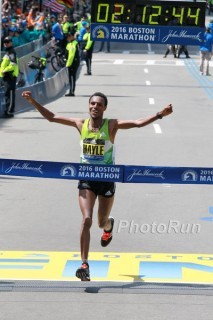
Lemi Hayle celebrates his first major marathon victory. Photo: PhotoRun.net
BOSTON — Thirty years ago, the Boston Marathon entered the 20th century, forced to join the ranks of other races like the New York City Marathon by offering prize money in addition to glory and a laurel wreath to its winners. The result was immediate, Rob de Castella shaving more than a minute off the course record with his 2:07:51 winning time, a mark that has been lowered over the intervening three decades by almost five minutes, currently standing at Geoffrey Mutai’s wind-aided 2:03:02 from 2011.
That mark was in no danger of being threatened this year due to the combination of a less-than-stellar field and balmy spring temperatures in the mid- to upper-60s. But no one expected Lemi Berhanu Hayle’s winning time of 2:12:45, the slowest mark of the professional era aside from the Nor’easter year of 2007.
A large pack of nearly two dozen men dawdled through the opening miles in the 5-minute range, hitting halfway in 1:06:43. That in itself did not foretell a slow finish, as negative splits and fast racing over the second half, in spite of the Newton Hills it contains, has been as much the rule as the exception in recent years.
RELATED: Boston Marathon Top-20 Finishers
But this time only Ethiopia’s Lelissa Desisa, the winner here in 2013 and 2015, seemed interested in pushing the pace, interjecting a 4:33 16th mile, instantly whittling the pack down to just he and his 21-year-old countryman Hayle. The pair clipped off a few more sub-5-minute miles, opening a gap that grew to 39 seconds, looking like they were out for a training run on the outskirts of Addis Ababa.
Desisa made his bid for a Boston hat trick coming down Beacon Street, but Hayle covered that move, then countered with one of his own as they passed Fenway Park. And in that instant, the race was over, the lead growing to 5, 10, 15 meters and Desisa slowing his turnover and beginning to look back to defend his position. Desisa will have to try to continue his trend of winning Boston in odd-numbered years, settling for the runner-up spot this time, 47 second behind Hayle.
Yemeni Adhane Tsegay, whose wife Tirfi Tsegaye finished second in the women’s race, rounded out the top three in 2:14:02 for an Ethiopian sweep of the podium, a first for that country and the first national sweep of the podium since Kenya turned the trick in 2012.
Hayle, who set his PR of 2:04:33 at Dubai in January, where he finished second, came to Boston completely focused on place rather than time. “Running fast in Dubai took a lot of effort,” he said. “I was here to win, not run fast. I was happy to take it easy and watch everyone else.
“At 5K everyone looked good, like they could be dangerous,” he continued. “But when Desisa pushed, I knew he was the person to beat.”
“The pace was slow though 20K so I decided to go,” said Desisa. “I tried to win at 32K but I had a little problem with my left leg and when Lemi pulled away I knew he would be successful.”
Asked if they thought their performances here would help or hurt their chances of being selected for the Ethiopian marathon squad for Rio, both men were unsure. “We will have to wait and see what performances come out of London next week,” said Hayle. “I have already shown I can run fast [in Dubai] and today I showed I can win, so I hope so.”
With almost all the top Americans rendered hors de combat by their participation in the U.S. Olympic Trials in February, there was not much focus on or expectations for any kind of showing by them here, but Zach Hine surprised everyone by placing 10th in 2:21:57.
Ian Burrell (13th, 2:22:22) and over-40 masters division champion Clint Wells (17th, 2:24:55) were the other U.S. men among the top 20 finishers.
“I was 16th here in 2011 and I’ve always wanted to come back, but things just haven’t worked out,” Hine said.
Forced to drop out of the Trials due to cramping, his run here today was particularly sweet for the South Hadley, Mass., native now living in Dallas, where he works full time as an engineer in the oil industry.
“I never thought I’d be in the top 10 here,” he said. “I was hoping for top 20. I’ve been watching this race since I was a little kid. I had a lot family and friends out there on the course, and I heard people calling my name, even though it wasn’t on my bib. My phone’s been blowing up with texts and voicemails since I finished, and my sister finished with a PR, so it’s been a pretty good day for me.”
And in spite of times that seemed like they were 30 years old, it wasn’t too bad for the top three men, either.
RELATED: Atsede Baysa Wins Boston Marathon Women’s Title
The post Lemi Hayle Leads Ethiopian Sweep at 120th Boston Marathon appeared first on Competitor.com.
Ethiopian Atsede Baysa Comes From Behind To Win 2016 Boston Marathon
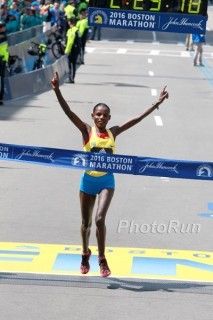
Atsede Baysa breaks the tape on Boylston Street. Photo: PhotoRun.net
Thirty-seven seconds. That was the gap between the three-woman lead pack of Tirfi Tsegaye, Joyce Chepkirui and Valentine Kipketer and fourth-place runner Atsede Baysa with less than 5 miles to go at Monday’s 120th Boston Marathon. By all accounts, Baysa seemed out of it.
But the 29-year-old Ethiopian was just getting started. The diminutive Baysa threw in a 16:43 5K—the fastest of the race—from 35-40K, catapulting herself to a 7-second lead with just over a mile to go. She kept her foot on the gas all the way to the finish line on Boylston Street, breaking the tape in 2 hours, 29 minutes and 19 seconds to claim the third World Marathon Majors win of her career.
“Winning Boston versus the strongest ladies in the field is big,” Baysa said through a translator at the post-race press conferences. “I was very focused. In the middle it was like a fartlek (workout) and I decided to maintain my pace. I knew if I pushed (the final 7K) that I could catch them.”
Tsegaye, 31, also of Ethiopia, finished second in 2:30:03, while the 27-year-old Chepkirui of Kenya took third in 2:30:50. The race, along with Sunday’s London Marathon, serves as the unofficial selection races for Ethiopia’s Olympic team.
RELATED: Boston Marathon Top-20 Finishers
The race started out at a snail’s pace, as a large pack hit the 1-mile mark in a slow 6:04 before 39-year-old Jelena Prokopcuka of Latvia injected a surge of speed, dropping a 5:36 second mile to shake up the field. Prokopuka continued to lead through Mile 3 with a 5:53 split, as the pack yo-yo’d through halfway in 1:15:32.
“I lost a lot of energy in the middle,” Tsegaye said. “It was like a fartlek (workout).”
Another surge just before Mile 14 split up the lead pack, as Tsegaye, Chepkirui, Kipketer and Flomena Daniel of Kenya made a break and opened up a quick gap on Baysa and the other chasers. By 30K (1:46:32), Daniel began to fall off the pace, as Baysa trailed 26 seconds behind the leaders. That gap between Baysa and the trio of Tsegaye, Chepkirui and Kipketer grew another 11 seconds over the next 5K before things changed in a big way.
Tsegaye made an effort to run away from her Kenyan pursuers and seemed to be making some headway before Baysa appeared in the rearview mirror for the first time. Baysa put an incredible 14 seconds per mile into her countrywoman over the next 3 miles to take over the lead with less than 2 miles to go—an advantage she held all the way to the tape on Boylston Street. She was the only elite woman to record a negative split on the day, clocking a quick 1:13:43 over the final 13.1 miles of the race.
Neely Spence Gracey, making her marathon debut, was the top American finisher in ninth-place, running 2:35:00. The 26-year-old from Superior, Colo., ran a strong second half of the race to crack the top-10.
“I got exactly what I wanted,” said Gracey, whose dad, Steve Spence, won a bronze medal at the 1991 World Championships and ran on the 1992 U.S. Olympic team. “A 2:35 and top ten, so I met both of my goals.”
Gracey ran alongside fellow American Sarah Crouch for most of the race, as the two ran together through 30K in 1:50:30. Gracey pulled away after Mile 20, averaging 5:45 miles from 35-40K to make her first marathon a memorable one. Crouch, who didn’t compete in February’s Olympic Trials Marathon due to a hip injury, was 11th in 2:37:36.
Laurie Knowles (17th, 2:45:19) and Hilary Como (20th, 2:48:49) were the other U.S. runners among the top 20th finishers.
“I’m definitely very pleased,” Gracey said. “The crowds did not disappoint, especially the last 10K or so. The energy was spectacular. I’m so happy to be here. I guess I can finally call myself a marathoner.”
RELATED: Neely Spence Gracey Takes On Boston in Marathon Debut
The post Ethiopian Atsede Baysa Comes From Behind To Win 2016 Boston Marathon appeared first on Competitor.com.
Learn From a Pro: Ian Burrell
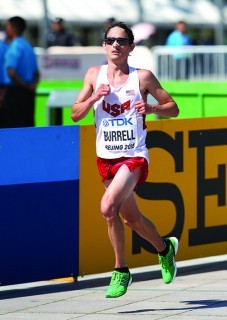
Photo: Photorun.net
While in law school at the University of Arizona, the 31-year-old Burrell from Colorado Springs, Colo., who is now an attorney, managed to log up to 110 miles a week as he prepared to compete in the marathon. He even got in a 2-mile “walk” the day that his wife, Courtney, informed him that they were expecting the birth of their daughter, Shaylee. He owns a 2:13:26 marathon PR and was the top U.S. finisher at the 2015 IAAF World Championships (25th) last August in Beijing. He came in 13th place as one of the top American contenders at the 120th Boston Marathon on April 18. We caught up with Burrell on marathon training tips, how he manages a work/run life balance, and overcoming setbacks:
What’s your secret to a work-run-life balance?
Get up early. You have to decide what you are going to do for training long in advance. If your alarm goes off at 5 a.m. and it’s cold, you’re going to want to say no to running, but if you don’t give yourself that option you will be surprised what you can push your body through. Make the decision once and everything else will follow.
Who is your running hero?
My dad. He was an All-American at Idaho State. He taught me the importance of getting all you can out of running—but making sure that’s not all you have in your life.
Favorite carbo-loading food?
I will eat everything. I don’t pay too much attention to food because I don’t want to focus too much on being rigid with that aspect of my preparation.
Advice on handling the marathon wall?
Keep pumping your legs and don’t think about anything else. Pick your knees up and move your arms. Break the race up into checkpoints and focus on getting to the next aid station.
What does it feel like to wear a USA singlet?
I definitely get a sense of pride. I also feel a little bit of pressure. When I’m wearing that special singlet, I always go to the well and tear myself inside out because I don’t know how many times I will get that honor.
How do you overcome setbacks?
I just come back to the fact that I love competing more than anything else. What really fuels me is putting a solid training block together and then toeing the line with some of the best runners in the world to see how I stack up. I never know when my opportunity is going to come where I have a race that’s a highlight of my career. I train hoping for such a highlight.
The post Learn From a Pro: Ian Burrell appeared first on Competitor.com.
2016 Boston Marathon Top 20 Finishers
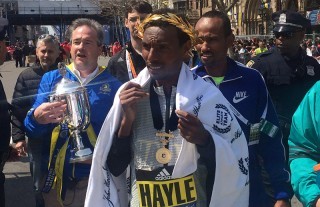
Lemi Berhanu Hayle, the men's winner. Photo: Brian Metzler
Here’s how the top 20 men and women fared at the 2016 Boston Marathon:
RELATED: Ethiopians Sweep the 2016 Boston Marathon
Men
Lemi Berhanu Hayle (ETH), 2:12:45, $150,000
Lelisa Desisa (ETH), 2:13:32, $75,000
Yemane Tsegaye (ETH), 2:14:02, $40,000
Wesley Korir (KEN), 2:14:05, $25,000
Paul Lonyangata (KEN), 2:15:45, $15,000
Sammy Kitwara (KEN), 2:16:43, $12,000
Stephen Chebogut (KEN), 2:16:52, $9,000
Abdi Nageeye (NED), 2:18:05, $7,400
Getu Feleke (ETH), 2:18:46, $5,700
Zachary Hine (USA), 2:21:37, $4,200
Cutbert Nyasango (ZIM), 2:22:02, $2,600
Tsegaye Mekonnen (ETH), 2:22:21, $2,100
Ian Burrell (USA), 2:22:22, $1,800
Jackson Kiprop (UGA), 2:24:44, $1,700
Harbert Okuti (UGA), 2:24:46, $1,500
Solonei Da Silva (BRA), 2:24:54
Clint Wells (USA), 2:24:55
Nori Kamijo (JPN), 2:25:31
Shingo Igarashi (JPN), 2:26:24
Michael Kipyego (KEN), 2:27:02
Women
Atsede Baysa (ETH), 2:29:19, $150,000
Tirfi Tsegaye (ETH), 2:30:03, $75,000
Joyce Chepkirui (KEN), 2:30:50, $40,000
Jelena Prokopcuka (LAT), 2:32:28, $25,000
Valentine Kipketer (KEN), 2:33:13, $15,000
Flomena Cheyech Daniel (KEN), 2:33:40, $12,000
Buzunesh Deba (ETH), 2:33:56, $9,000
Fate Tola (ETH), 2:34:38, $7,400
Neely Spence Gracey (USA), 2:35:00, $5,700
Mamitu Daska (ETH), 2:37:31, $4,200
Sarah Crouch (USA), 2:37:36, $2,600
Miharu Shimokado (JPN), 2:39:21, $2,100
Amane Beriso (ETH), 2:39:38, $1,800
Tiki Gelana (ETH), 2:42:38, $1,700
Tadelech Bekele (ETH), 2:44:20, $1,500
Fatuma Sado (ETH), 2:45:17
Laurie Knowles (USA), 2:45:19
Yuka Mikami (JPN), 2:48:17
Kana Kurosawa (JPN), 2:48:47
Hilary Como (USA), 2:48:49
The post 2016 Boston Marathon Top 20 Finishers appeared first on Competitor.com.
Ethiopians Sweep the 2016 Boston Marathon
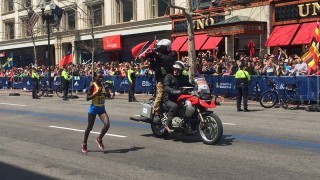
Atsede Baysa running down Boylston Street. Photo: Brian Metzler
BOSTON — It was a surge to remember.
Atsede Baysa of Ethiopia was 37 seconds back at 35K at Monday’s Boston Marathon, in fourth place behind three women who were seemingly certain to make up the podium.
Twenty minutes later, Baysa was the Boston Marathon champion, picking off Valentine Kipketer, Tirfi Tsegaye and Joyce Chepkirui to win the race in dramatic fashion. Her time of 2:29:19 beat second-place Tsegaye by 44 seconds.
Baysa’s splits showed how strong of a race she ran: A 1:15:32 first half, followed by a 1:13:43 second half to pull away. Tsegaye finished second in 2:30:03, with Chepkirui third in 2:30:50. Defending champion Caroline Rotich of Kenya dropped out of the race about five miles in.
RELATED: 2016 Boston Marathon Top 20 Finishers
In the men’s race, Lemi Berhanu Hayle pulled away from fellow Ethiopian and defending champion Lelisa Desisa after the water table in mile 24. Hayle finished in 2:12:45, 47 seconds ahead of Desisa. Yemane Tsegay finished third to complete the Ethopia podium sweep. He was just three seconds ahead of fourth-place Wesley Korir of Kenya.
As for the top American women, Neely Spence Gracey stayed with the lead pack for the first five miles before fading back in her anticipated marathon debut. Her and Sarah Crouch ran together for much of the race at that point, but Gracey pulled away and finished in 2:35:00 for ninth place overall. Crouch finished in 2:37:36, good for 11th overall.
“The crowds didn’t disappoint, this was amazing,” Gracey said afterward. “I’m so happy to be here. I guess I can finally call myself a marathoner.”
On the men’s side, Zachary Hine placed 10th in 2:21:37 to claim top American honors. Ian Burrell was 13th in 2:22:22.
In all, there was $830,500 in prize money at stake, with Baysa and Hayle earning $150,000 for the win.
The post Ethiopians Sweep the 2016 Boston Marathon appeared first on Competitor.com.
April 17, 2016
10 Elite Runners to Watch at The 2016 Boston Marathon
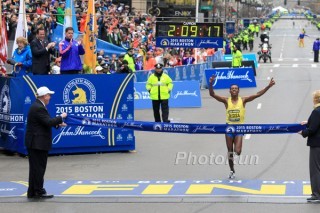
The 2016 Boston Marathon once again boasts strong international fields, led by defending champions Lelisa Desisa of Ethiopia and Caroline Rotich of Kenya. They’ll be joined by a number of world, Olympic and Major Marathon champions, including six men with personal bests under 2:05 and four women who have broken 2:22. Here’s a look at 10 elite runners to keep an eye on this Monday:
Photo Gallery
1 of {count}
Back to Start
View Larger Image
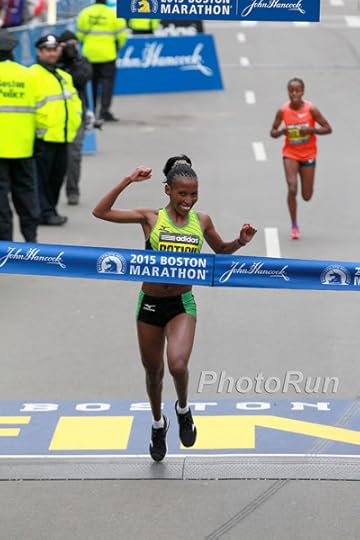
Caroline Rotich
The defending champion, Rotich won last year's race in 2:24:55—a feat she calls her "biggest and most treasured performance." She was fourth here in 2011. The 31-year-old Kenyan lives and trains in Santa Fe, N.M., under coach Ryan Bolton, and holds a personal best of 2:23:22, set at Chicago in 2012. "For what Boston has given me and what Boston has endured, I would like to give back by defending my title," Rotich said. "I cannot wait to line up with everyone else and give it 100 percent." Photo: PhotoRun.net
View Larger Image
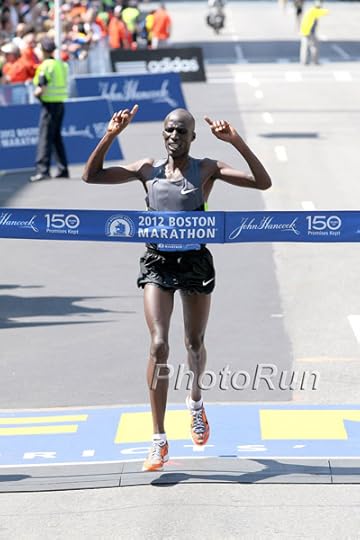
Wesley Korir
The 2012 Boston champion, Korir returns to take another shot at being crowned with the laurel wreath on Boylston Street. The 33-year-old Kenyan has a 2:06:13 personal best from Chicago in 2012 and has run under 2:10 six times in his career. "The Boston Marathon inspired fervor, energy and enthusiasm," Korir said. "The course has a reputation—fame!" Photo: PhotoRun.net
View Larger Image
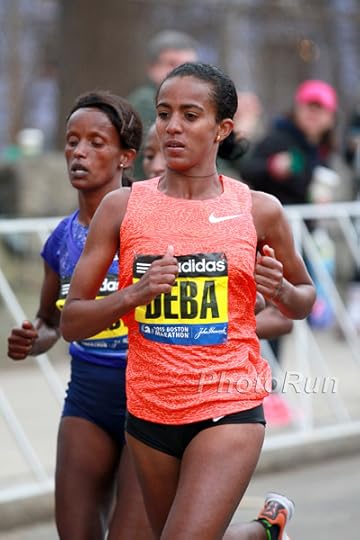
Buzunesh Deba
Deba, one of two women in history to break 2:20 on the Boston course (2014 champion Rita Jeptoo was later busted for doping), is hoping to find her way to the top of the podium on Monday. The Ethiopian—who trains in the Bronx, N.Y.—was runner-up here in 2014 and third at last year's race. She's also been second twice at the New York City marathon (2011, 2013). "I have a great passion for running the marathon in Boston, because it is one of the best and most challenging races of the World Marathon Majors," Deba said. Photo: PhotoRun.net
View Larger Image
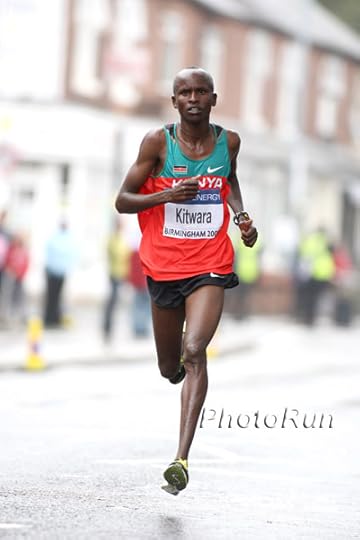
Sammy Kitwara
The 29-year-old Kitwara has serious wheels, boasting a 2:04:28 personal best from Chicago in 2014. The Kenyan is making his Boston Marathon debut on Monday and would love to add a Patriots Day win to his already impressive resume. "I am dedicated to this race like there is no other race in my life," he said. Photo: PhotoRun.net
View Larger Image
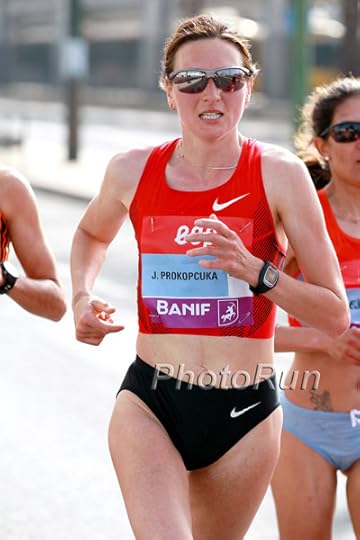
Jelena Prokopcuka
The 39-year-old Prokopcuka is the veteran of the field. She'll be lining up for her 15th World Marathons Majors race on Monday. Twice the winner at the New York City Marathon and a two-time runner up here, the Latvian has a 2:22:56 personal best, which is her country's national record. "When I see a target, I devote everything to reach that target," Prokopcuka said. "Today for me, the marathon in Boston is my goal, and the key word will be dedication." Photo: PhotoRun.net
View Larger Image
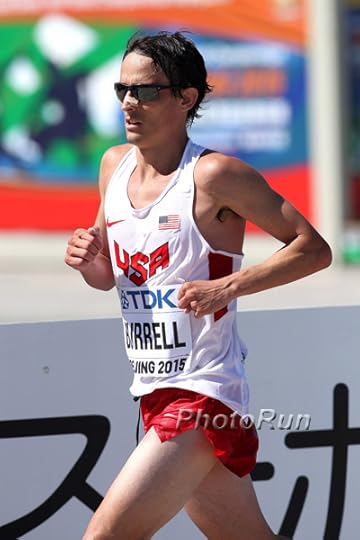
Ian Burrell
Burrell, the top-ranked American in the field, is running his last competitive marathon on Monday. The 31-year-old has a personal best of 2:13:26, set in 2013. He finished 25th at last year's world championships. "This is the time to run bold," he said ahead of this year's race. Photo: PhotoRun.net
Related Galleries

Photos: Ryan Hall Career Highlights
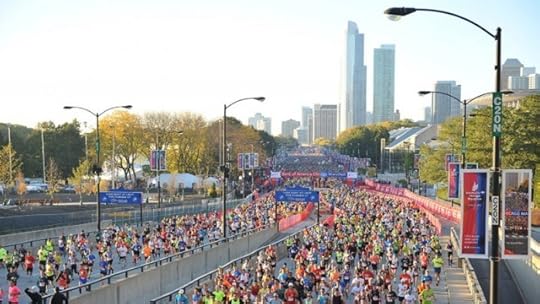
15 Bucket-List Marathons in the United States
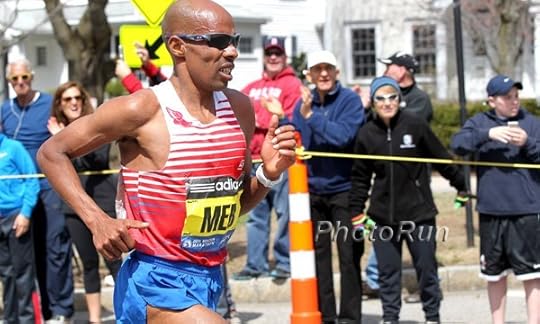
Photos: Boston Marathon Through the Years

Photos: Shalane Flanagan Career Highlights

More Galleries
The post 10 Elite Runners to Watch at The 2016 Boston Marathon appeared first on Competitor.com.
‘Born to Run’ Book Hero Arnulfo Quimare Making Boston Debut
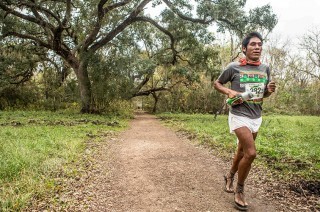
Arnulfo Quimare, seen here at the Brazos Bend 50. Photo: Myke Hermsmeyer
[Editor’s note: Arnulfo Quimare finished the 120th Boston Marathon on April 18 in 3:38:11.]
Arnulfo Quimare, the ultra-running Tarahumara hero of the best-selling Born to Run, makes his Boston Marathon debut Monday. Also in the field is Irma Chávez Cruz, a Tarahumara community mayor, and expert in the language. Both will run in a traditional loose-fitting colored costume (a dress for Chávez Cruz), with headbands. Chávez Cruz opened a special session at the Boston Marathon Expo speaker series Saturday with a song in the Tarahumara language, a first at any running seminar.
Quimare and Chávez Cruz are in Boston as guests of the Boston Athletic Association, to be part of the marathon’s first-ever celebration of its Native American running tradition. Eighty years ago, the 1936 Boston Marathon was won by Ellison “Tarzan” Brown, a Narragansett of Rhode Island. That was the race that gave the infamous Heartbreak Hill its name, when Johnny Kelley (the older) gave Brown a patronizing pat as he came confidently past at the foot of the hill, only to provoke the Native American into a powerful winning surge that (they wrote at the time) broke Kelley’s heart.
Brown won Boston again in 1939. Tom Longboat, Onondaga Six Nations from Ontario, won in 1907, and Andrew Sockalexis (Penobscot from Maine) was second in 1912 and 1913. All became Olympians, Longboat for Canada. All are represented in this year’s Boston race by “Honor Runners,” running in their names.
The BAA also joined Harvard University and its Peabody Museum in sponsoring a free, public conference, on Friday April 15, “Native American Running: Culture, Health, Sport.” The highlight was a moving presentation by the 1964 Olympic 10,000 meters gold medal winner, Billy Mills, whose dramatic sprint on the wet Tokyo cinder track launched a lifetime’s work in helping fellow Native Americans to find purpose and education. Mills grew up as an orphan in poverty as Oglala Dakota Sioux on a reservation in Pine Ridge, became an officer in the Marines, and adopted running as a means of “healing my broken soul,” he told the large conference audience Friday.
“Our young people must have a dream, and hope,” he said. “The conference at Harvard was a major step in giving recognition to our people. Running is a means of healing. We need healing from the long-time negative impact of the ‘Doctrine of Discovery,’ which deemed, when Europeans first came here, that non-Christians—that is, the Native people—had no right to own land.
“I love this country and served as a Marines officer, and I welcome this step toward our country helping its Native American people to heal.”
Mills is national spokesperson for “Running Strong,” creating opportunities for American Indian youth. The educational/running program “Wings of America” was also represented at the conference by its program director, Dustin Martin (Diné), an alumnus of the program and former team member of the Columbia University track and cross-country teams.
Mills and Martin both stressed the value of using the innate running abilities of Native American youth to give focus and self-esteem. Dr. Daniel Lieberman, Professor of Biological Science at Harvard, showed the evolutionary and physiological basis of those abilities.
A full-house follow-up session at the Boston Marathon Expo introduced marathoners to Quimare and Chávez Cruz, who (through an interpreter for Quimare) spoke of the traditional ball-race of the Tarahumara people, an ultra event that can last for more than 24 hours, and acts as a social gathering for the whole community (not unlike a modern city marathon like Boston).
“We don’t train in your way, because running is simply part of our way of life. Running is a form of prayer, and the way we connect with the natural world,” Chávez Cruz said.
Other speakers included Born to Run author Chris McDougall and the 1983 Boston Marathon champion, Rob de Castella of Australia, who heads the Indigenous Marathon Project, a program that promotes health and social change among Australian aboriginal people through running.
President Obama awarded Mills the Presidential Citizens’ Medal in 2012, the only track gold medalist to receive that honor for his later life work.
“When I lived in Tokyo, I used to run by the stadium and was always thrilled to see the name of Billy Mills engraved there among the gold medalists. Now Billy and Rob are showing that running, and the Boston Marathon in particular, lead to social benefit far beyond merely the sport of distance racing,” said BAA’s Executive Director Tom Grilk.
“We’re proud to work with our friends at Harvard to explore all facets of Native American culture through running.”
The post ‘Born to Run’ Book Hero Arnulfo Quimare Making Boston Debut appeared first on Competitor.com.
April 16, 2016
Boston Marathon’s ‘Official Greeter’ Honored in Ceremony
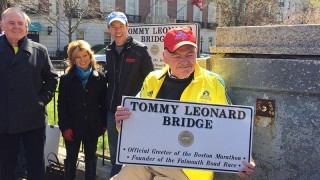
BOSTON—For years, runners coming down Commonwealth Avenue in the final mile of the Boston Marathon could look for a landmark on the corner of Massachusetts Avenue telling them their long journey was almost done. It was the Elliott Lounge, the watering hole of the Hotel Elliot, where seemingly every runner in the Hub, from world record holders to middle-of-the-packers, would stop in for a refreshing post-run beverage, served by the able hand of Tommy Leonard.
Leonard, the de facto mayor of the Hub’s running world, was, according to current marathon race director Dave McGillivray, a guardian angel for runners of the city, and was also responsible for founding the Falmouth Road Race, the New England summer racing institution.
Change, of course, is inevitable, even in a tradition-bound city like Boston. The Elliott Lounge closed and the marathon route was modified so runners now go under Mass Ave, alleviating a huge traffic jam in Back Bay. The span that carries the road above Commonwealth has been known as the Tommy Leonard Bridge, and like its namesake, has seen better days physically. The bridge is scheduled to be replaced in the next few years, but two days before this year’s Boston Marathon a crowd of a few hundred of Leonard’s friends and admirers gathered on a breezy afternoon for the re-dedication of the bridge.
The speakers were a Who’s Who of New England running: two-time Boston champs Geoff Smith and Joan Benoit Samuelson, former world record holder Steve Jones, McGillivray, and former Boston mayor Ray Flynn.
As McGillivray said in his remarks, “Tommy has always watched over us runners, and now his bridge will continue to do that for the thousands of marathoners who will pass under it on Monday.”
The post Boston Marathon’s ‘Official Greeter’ Honored in Ceremony appeared first on Competitor.com.
Ryan Hall's Blog
- Ryan Hall's profile
- 21 followers



